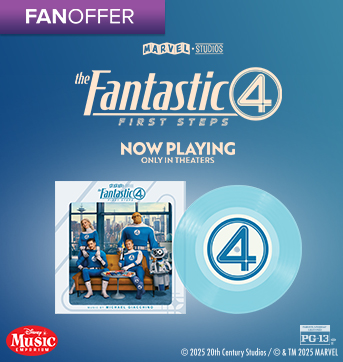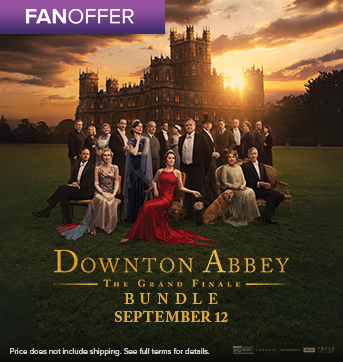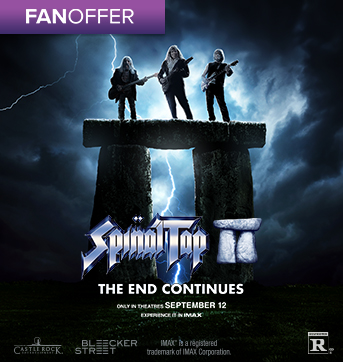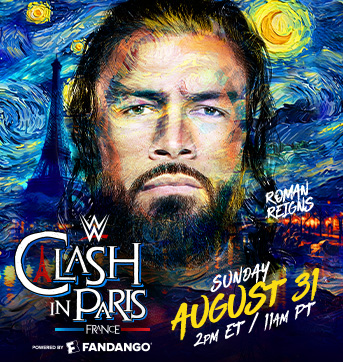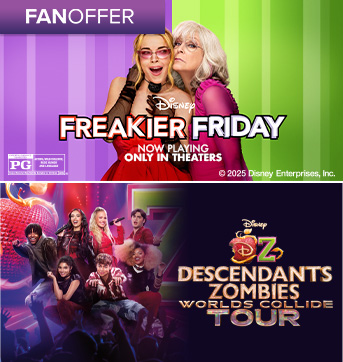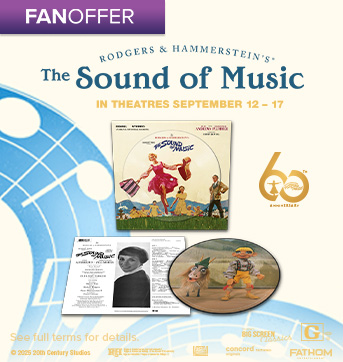2018 was a supremely interesting film year. Following #MeToo and a few years after #OscarSoWhite, Hollywood’s stories and hiring practices finally started to shift toward making more films centering on and made by women and people of color. Most of the best films of the year represented more access to filmmaking by those groups and cinema is better for it. Most of my runner-ups also fall into this category, and indeed cutting off at the 10-spot was the hardest thing to do because I could easily write a top 25 and feel excited and precious about every single one. But top 10 is the norm, the old gilded gatekeeping door. And we’re keeping something classic around here, even if the most classical films have something wholly 2018 unique about them!
So, because I wrote so much, let’s just dive right in! Here are my top 10 films of the year (plus oh-so-close runner-ups). Note: links are to Fandango showtimes and home video purchase/rental pages on FandangoNow.
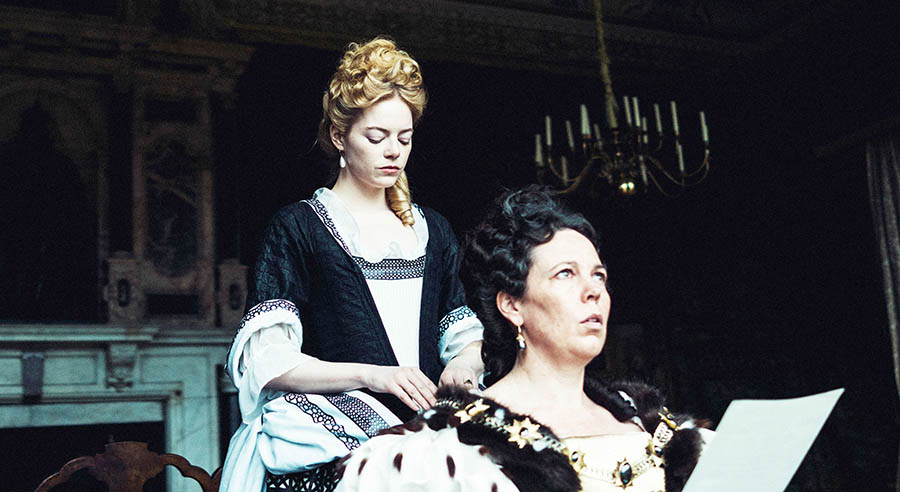
10. The Favourite
Yorgos Lanthimos, the leader of the Greek Weird Wave and most famous for his black-hearted there-is-no-true-love scorcher, The Lobster, is not interested in making Masterpiece Theatre in The Favourite. Set in 1705 England, the camera zooms through the hallways and flame-lit walkways of the 18th century palace, and sometimes it even perches on the floor as if it's ready to serve the Queen herself (Olivia Colman). And the youngest woman on screen (Emma Stone), who also has the lowest social stature, gets to act big and carry herself like she in fact is the big stick, just like a 2018 woman who's been dropped into old clothing that can’t restrict her energy. The shifting planes of friendship, gender, power, manipulation, is manifested with whip pans within a room, charging down a hallway, from beneath a chin in the most unflattering of angles.
Rachel Weisz plays the Queen’s lover who loves the power of guiding the Queen, but once she sees how easily the Queen could desire the attention of someone new, her power plays shift; this is a dark comedy of long game vs. short game, in politics and love, and how one's attempt for survival is constantly short-term based and the long game, though it may seem like losing, yields better rewards.
Where you can watch it: The Favourite is currently playing in limited release and expanding weekly, check your local theater listings on Fandango!
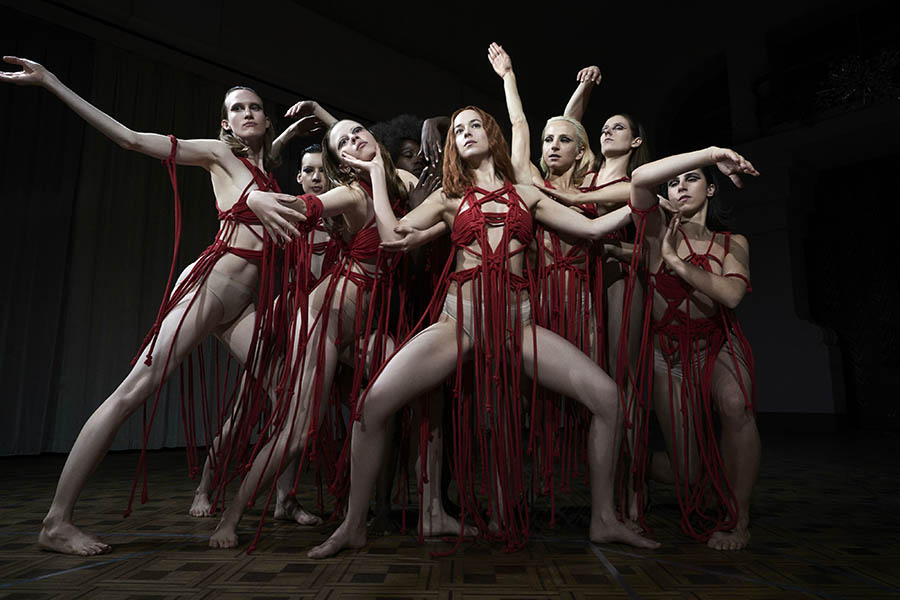
9. Suspiria
Luca Guadagnino did Dario Argento's Suspiria right by doing it completely opposite of the original. As such, you can love each for opposite reasons. Take note, studio remakes!
Gone are the patented Argento neons, and in are the concrete slabs and Rainier Werner Fassbinder's sepia-toned 1970's Berlin. Gone are the Goblin whispers, and in are the Thom Yorke kicking, squealing, Gucci little tenors. Gone is the short runtime, and in is an epic that spans Ohio to East and West Germany and thousands of years ago. But of all the opposite choices, done with great care and immense craft, Guadagnino makes two major distinctions with his version. First, unlike Argento's Suspiria, in this one you know that the dance troupe is a witches' coven even if you haven't seen the original film. The mystery isn't in what's happening and who's doing it, but it's all about why and, somewhat more importantly, which witch they give allegiance to. And second, instead of being a fairytale using youth as a loss of innocence at the hands of something that's been haunting the Earth long before her, Guadagnino loses all innocence and makes this a film about the corruption of desiring power. and the collective pain that comes from that pursuit—whether it’s thousands of years of restraining femininity, the rise of Nazism, or the division of a major city that gave way to the German Autumn (and New German Cinema).
Yes, Suspiria is excessive, but it’s aggressively ambitious and wholly transfixing. Oh, and full of gross details in the body horror.
Where you can watch it: Suspiria remains in a few theaters this week and is currently available to pre-order from FandangoNow.
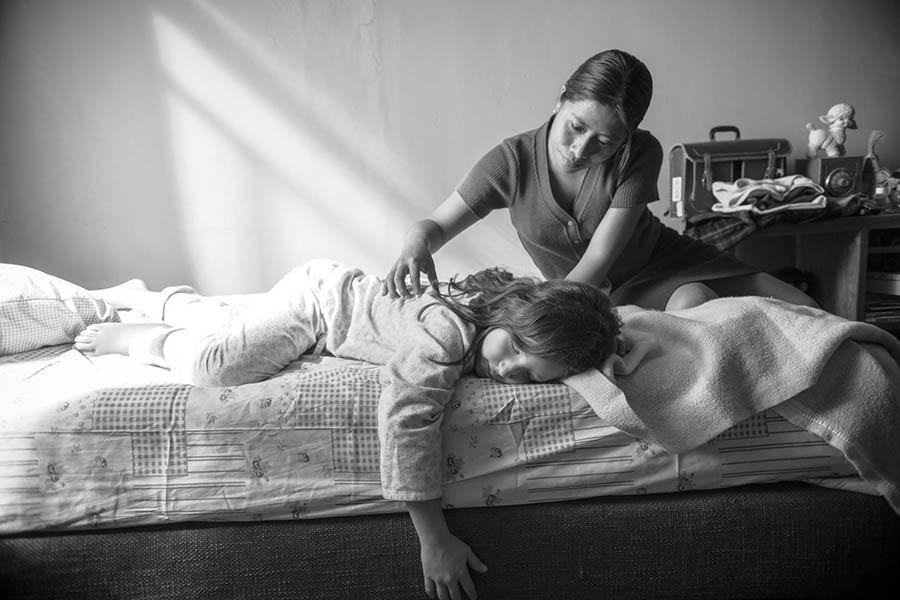
8. Roma
Alfonso Cuarón goes full-on Fellini with Roma. This is the Oscar winner’s (Best Director, Gravity) personal tale of a maid (a great Yalitza Aparicio) who becomes pregnant but cares for the children of the house more than her own potential motherhood, it's fitting that the emotional heft is on the back of a woman whose role affords her little time for personal sentiment—and thus, there is no sentimental musical score which makes a very emotional film feel, shockingly, more emotional and aching. Roma is a beautiful, tender, and massive movie, with the usual jaw-dropping visual moments from Cuarón, though fittingly, those moments are more stable than we’re used to from the auteur; the camera movements being pans and 360 spins, but never handheld; with Roma Cuarón is observing more than diving in because he’s diving into his childhood observations as is. This film is so personal to Cuarón that he doesn't need to charge the camera to get intimate with it; it's in him.
Where you can watch it: Currently playing in select theaters, check your local listings on Fandango.
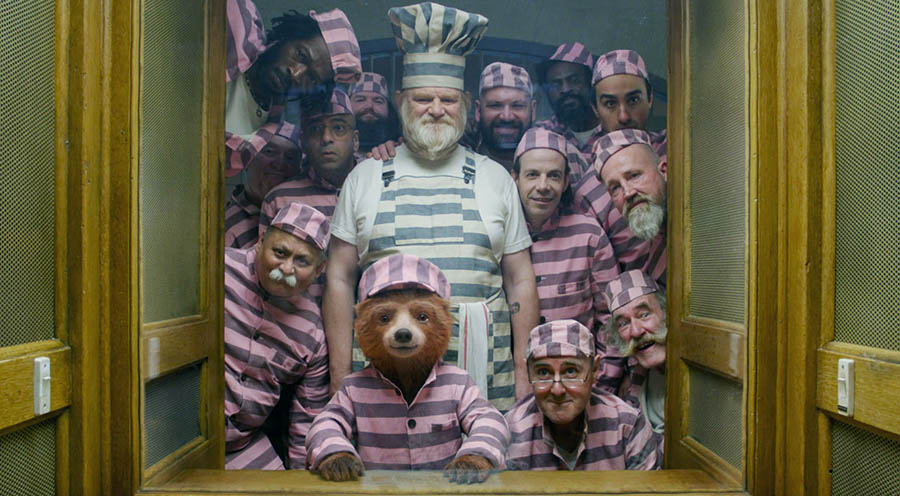
7. Paddington 2
Blazes, what a joy! Though the first adventure of Paddington Bear was a treat, Paddington 2 is one of the best sequels of all time; where one was cute, this is near perfection. It even mocks Orson Welles’ finest French champagne commercial by putting Hugh Grant in a dog suit for the finest dog food! Each adventure aside is divine; from the carnival stud-ball tosser to the barber shop accidents to the steam engine enthusiast and the pink prison garb that enlivens politeness and engenders respect. The message of Paddington 2 is inclusivity and it’s never cloying. It owes a lot to Wes Anderson in tunnel digs, gear escapes, and pop-up book dioramas, but Paul King substitutes earnestness and awkward empowerment for Anderson's cool kid needle drops. It’s pure dopamine. I love it, I love it, I love it.
Where you can watch it: Available to buy today on FandangoNow!
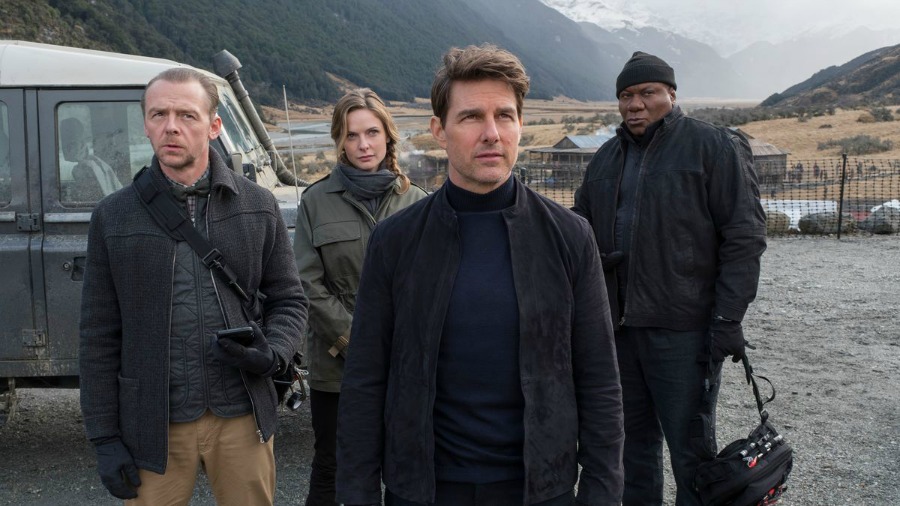
6. Mission: Impossible – Fallout
Mission: Impossible — Fallout is the best pure action film of this century; for story and cinematic meaning it's behind Mad Max: Fury Road but in terms of varied action, nothing beats this. This is a delirious Looney Tunes movie where you fear for everyone’s safety, let out howls of astonishment, and it’s the only Mission: Impossible film that’s maintained that level of intensity and disbelief for the entire three acts.
For the sixth entry into the series, Christopher McQuarrie becomes the first person to direct more than one of Ethan Hunt's sagas. And Fallout is the most direct sequel to a Mission film in that regard, but it's also interesting because it feels like McQuarrie truly listened to feedback from his first try (mostly, we love Rebecca Ferguson’s Ilsa and the third act needs the biggest action set piece of all). Rogue Nation had a rousing plane sequence that ended abruptly, a tense centerpiece at the opera that was deliciously Hitchcock-ian, and a third act that just kind of fizzled out due to bomb vests and a faraway trigger that was diffused by dialogue. But Fallout is completely balls out. It never lets up and the third act two-helicopter chase is legit insanity. That whole sequence operates on classic cartoon caper logic, but I'm convinced that Tom Cruise's body also operates on cartoon logic by now.
Sure, it's over the top to end the movie with everyone telling Ethan/Cruise what a hero he is, but it's a little window into Tom Cruise's psyche: he is doing more than everyone else when it comes to this type of film, so the line is more perhaps from the cast and crew than the characters. This is some 21st Century Charlie Chaplin stuff that will push all competitors to do better with less CGI.
Where you can watch it: Available to rent or buy today on FandangoNow!
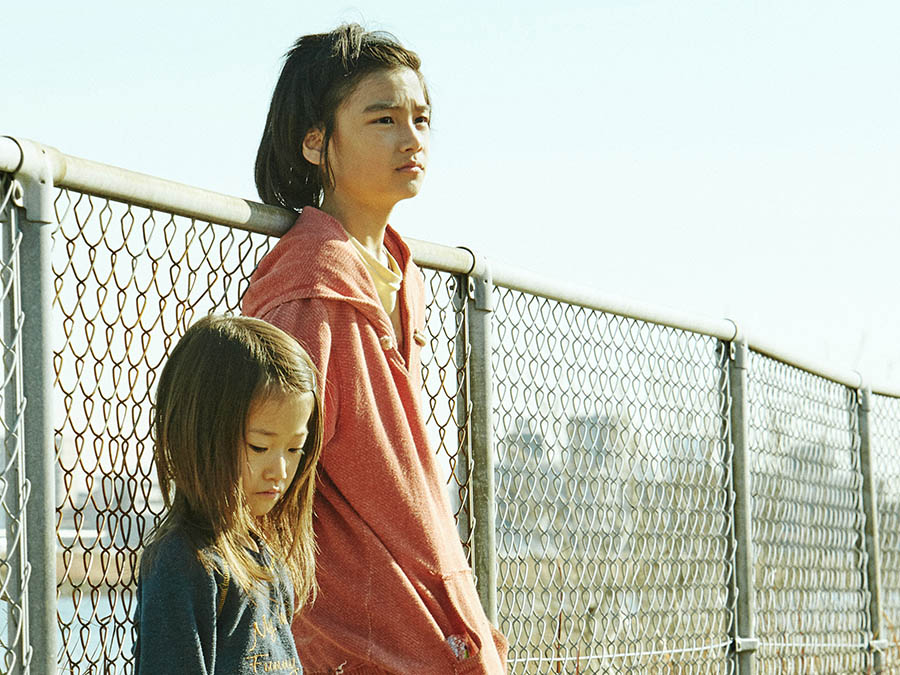
5. Shoplifters
At a time when we digest so many global stories daily, and can immediately pass judgement on others for their lives, Shoplifters is a reminder that clickable headlines that make us feel superior do not tell the whole story. Hirokazu Koreeda's film won the coveted Palme d'Or at the Cannes Film Festival—and it was completely warranted. This story of a family unit who steals together to stay together is much more than it lets on. It’s so warm and familial and even though the adults do not raise the children in the accepted way to be raised for success, the children still learn empathy and love from them. And that is underserved in society—even though child services would be called in for all the other reasons, they’re being underserved in this situation. Hirokazu Koreeda is great at family melodramas and Shoplifters is a warm cup of tea; the tea gets spilt but there’s still some honey at the bottom.
Where you can watch it: Shoplifters is currently playing in limited release, please check your local theater listings on Fandango!

4. First Reformed
First Reformed is a necessary entry into the crisis in faith subgenre; it is a textured plea for the survival of religion by resisting isolationism and taking a stance on something, anything, that's plaguing the future generation.
History is at the center of the central story, as Ethan Hawke's Reverend Toller prepares for the 250th anniversary of the Church that he preaches within. The church is now referred to as a souvenir shop as the attendance is primarily small groups requesting a tour of an old historically quaint church; he sells hats, shirts, and shows the hidden door that was made to transport runaway slaves through the Underground Railroad, undetected. The mention of the Underground Railroad is key because it shows that, outside of thoughts and prayers, his Church was once decidedly and actively on the right side of history. From where he sits now, his Church is on the wrong side of history, content to look backward 250 years but ignore their major corporate donations from one of the biggest polluters on the planet, unable to take a stance against global warming, allowing politicians to use their faith as a reason to deny obvious scientific findings.
Paul Schrader constructs the film similar to his 1976 classic script, Taxi Driver, but he shows his older wisdom that doesn’t dismiss religion nor the concerns of a younger generation but instead tries to justify the co-existence of both in order to find some elevating hope. It features Hawke’s best performance in his career and one of Schrader’s finest scripts.
Where you can watch it: Available to rent or buy today on FandangoNow!
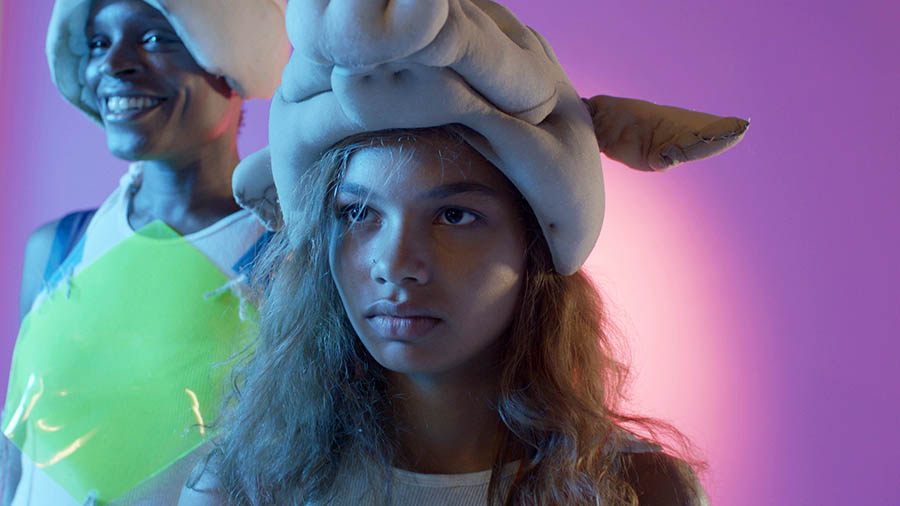
3. Madeline’s Madeline
Madeline's Madeline is something you have to submit to—its sum, its parts—in order to get what’s so fulfilling from the sum of its parts. This is immersive cinema that's set within an immersive theater troupe, full of soft focus and POV placement within a young woman's performative brain. Both director Josephine Decker and co-star Miranda July come from the performance art world. I do not know about newcomer Helena Howard's performance art background, as Madeline, who is credited with improvisational collaboration, but Howard is simply amazing in the lead role, a young woman who's acting out her family demons for a collective that's mining her pain and imagination. The film is meditative chaos, anxious energy fighting anxious stillness, each of which have no limits.
Madeline's Madeline hard to write about because it's primal, messy and stirs up feelings but what it's ultimately about will be an individual response to the sum of its parts. For me, it's exposing everything we do on the external as performance art to hide or only let certain parts of our internal show. Decker uses the hyper-aware oddities of performance art (become-an-animal routines) to reflect that lesser, more aware, and more nuanced day-to-day performance art seeps into our familial relationships (how we want to be seen, what we share, what we hide), our professional relationships (how we want to be respected, what we share, what we hide), and most performatively, our escapes (creativity; even pornography). I don’t want to make this sound too challenging, though, as there is a natural narrative flow that gurgles within, bubbling up into something more immersive. I just suggest submission (and this is coming from someone who’s uncomfortable with performance art and submission, yet still came away with a big ol' smile).
Where you can watch it: Available to rent or buy today on FandangoNow!
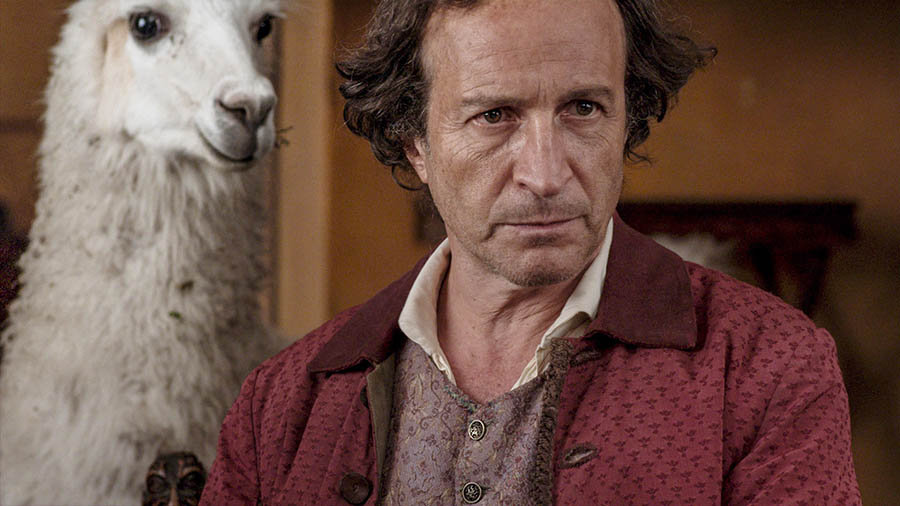
2. Zama
Off the coast of colonial Paraguay, a boy tells us, there is a group of fish that live close to the shore, who swim back and forth in a constant motion, using all their energy in an attempt to stay in the same place. The titular Zama (Daniel Giménez Cacho) is waiting to move back to Spain, but colonial forces keep him in one place, despite all his energy being spent attempting to convince his superiors to send a letter to the King asking for his new post. He’s frequently thwarted by frivolous tasks, and much like Herman Melville's Bartleby, the Scrivener he is constantly called back to a delicate comedy of bureaucracy. Like Zama himself, I was lulled into a gentle acceptance of purgatory before a sudden attack in the jungle dropped me into hell. All the credit is due to Lucrecia Martel, an international sensation who hadn’t directed a film in a decade.
I highly recommend Zama for the cinematically adventurous. There are so many quietly devastating moments in which men who crave adventure constantly thwart the simple requests of a man who wants his disappointing adventure to end. And then, he gets trapped in a violent scenario due to someone else’s desire for adventure.
Where you can watch it: Included with Amazon Prime membership.
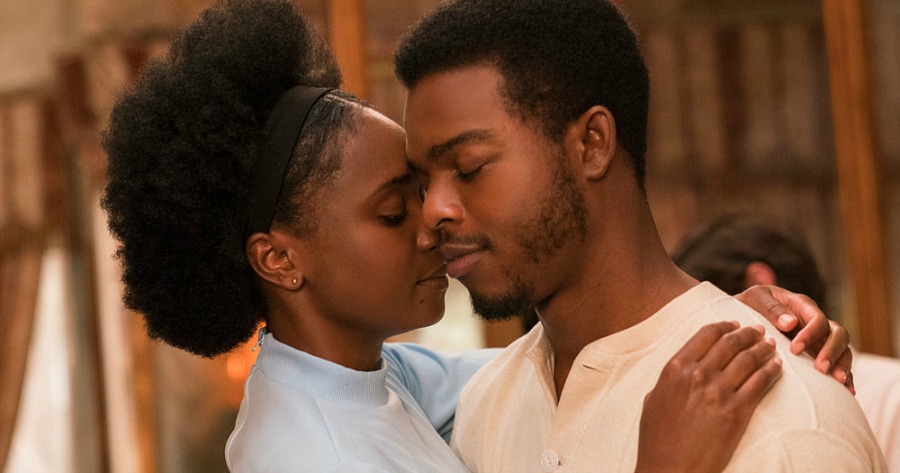
1. If Beale Street Could Talk
Barry Jenkins’ follow-up to Moonlight is an expansive adaptation of one of James Baldwin's most popular novels. It concerns a young couple as they navigate a rape trial with no evidence against a father-to-be (Stephan James) and the pregnancy of his young, determined lover (KiKi Layne). Telling the story non-linearly, If Beale Street Could Talk focuses on the spaces where the young lovers are afforded the ability to be themselves; their isolated moments are full of tenderness and warmth, but they are frequently disrupted by outside forces.
So much of Beale Street is about living buried beneath the construct of societal privilege that actively works to exclude our two lovers; still, it isn't a brutal film in those oppressive instances. It's a film that’s about every small gesture that inserts power and how it adds up—how a white man smells a black woman’s hand as opposed to how a black man does that same action, a perfume stand being an examination of power - this is a film of emotional beatings and resourceful responses to them. But it's also a beautiful and giving film, one full of loving gestures between friends, family and the occasional stranger. Truly transcendent, this was my favorite film of the year. It has the best composition in both Jenkins’ imagery and the film’s score (by Nicholas Britell) and that combination was released in tears and a reassuring cinematic hug.
Where you can watch it: Beale Street is in limited release now and will expand nationally in January. Check your local theater listings on Fandango!
(Very) Honorable Mentions, 11-25: The Rider (dir: Chloe Zhao), The Ballad of Buster Scruggs (dir: Joel Coen and Ethan Coen), Cold War (dir: Pawel Pawlikowski), Unsane (dir: Steven Soderbergh), You Were Never Really Here (dir: Lynne Ramsay), Foxtrot (dir: Samuel Maoz), The House That Jack Built (dir: Lars Von Trier), The Kindergarten Teacher (dir: Sara Colangelo), Everybody Knows (dir: Asghar Farhadi), The Sisters Brothers (dir: Jacques Audiard), Mandy (dir: Panos Cosmatos), Widows (dir: Steve McQueen), Game Night (dir: John Francis Daley and Jonathan M. Goldstein), and A Star Is Born (dir: Bradley Cooper)


